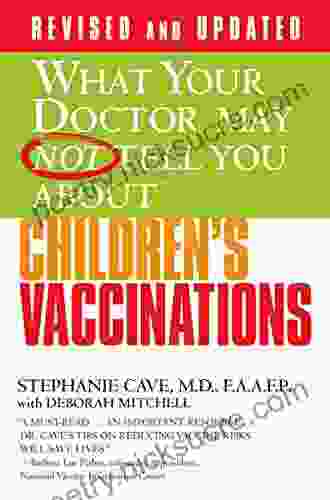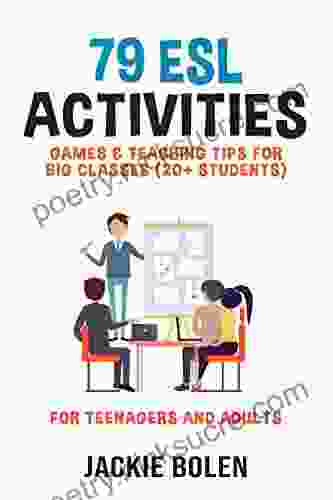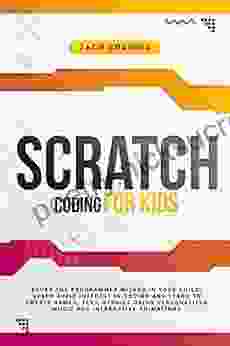Exploring the Language and Structures of English Academic Writing: A Comprehensive Guide for Clarity and Impact

Academic writing in English is a specialized form of communication that requires a deep understanding of the language and its conventions. Whether you're a student working on a research paper, a scholar crafting a dissertation, or a professional writing a journal article, mastering the language and structures of English academic writing is essential for effective communication and academic success.
In this comprehensive guide, we will explore the key elements of English academic writing, from the language to the structures. We will provide practical tips and examples to help you develop clear, concise, and impactful academic writing.
4.3 out of 5
| Language | : | English |
| File size | : | 672 KB |
| Text-to-Speech | : | Enabled |
| Screen Reader | : | Supported |
| Enhanced typesetting | : | Enabled |
| X-Ray | : | Enabled |
| Print length | : | 291 pages |
| Lending | : | Enabled |
The Language of Academia
The language of academia is characterized by its formality, objectivity, and precision. Here are some key features:
- Formal Tone: Academic writing uses a formal tone that avoids colloquialisms, contractions, and personal pronouns (e.g., "I," "we").
- Objective Language: Academic writing presents information in an objective and impartial manner, avoiding subjective opinions or emotional language.
- Precise Terminology: Academic writing uses precise and technical language to convey complex ideas and concepts accurately.
- Passive Voice: The passive voice is commonly used in academic writing to emphasize the subject matter rather than the actor.
- Hedging Language: Academic writing often employs hedging language to express uncertainty or cautiousness, such as "might," "could," or "may."
Structures of English Academic Writing
English academic writing typically follows a structured format that varies depending on the type of document. However, some common structures include:
Research Paper Structure
- Abstract: A concise summary of the research paper, including the research question, methods, results, and s.
- : Provides context, states the research question, and presents the thesis statement.
- Literature Review: Surveys existing research relevant to the research paper.
- Methodology: Describes the research methods and procedures used.
- Results: Presents the findings of the research.
- Discussion: Interprets the results, draws s, and discusses the implications.
- : Summarizes the research findings, restates the thesis statement, and suggests future directions for research.
Dissertation/Thesis Structure
- Abstract: A comprehensive summary of the dissertation/thesis.
- : Introduces the research topic, states the research question, and provides an overview of the chapters.
- Literature Review: Provides a comprehensive survey of existing research related to the dissertation/thesis topic.
- Methodology: Describes the research methods and procedures used in the dissertation/thesis.
- Results: Presents the findings of the research, often in multiple chapters.
- Discussion: Interprets the results, draws s, and discusses the implications.
- : Summarizes the research findings, restates the thesis statement, and suggests directions for future research.
- Appendices: Additional materials that support the research, such as data tables, questionnaires, or interview transcripts.
Tips for Effective Academic Writing
Here are some tips to help you write clear, concise, and impactful academic papers:
- Plan and Organize: Before writing, create an outline to structure your paper and organize your ideas logically.
- Use Clear and Precise Language: Avoid jargon and technical terms that your audience may not understand. Use specific examples and illustrations to clarify complex concepts.
- Maintain a Consistent and Formal Tone: Use formal language throughout your paper, avoiding colloquialisms and contractions. Maintain a neutral and objective tone.
- Cite Sources Properly: Academic writing relies heavily on credible sources. Make sure to cite all sources correctly using the appropriate citation style.
- Proofread Carefully: Before submitting your paper, proofread it carefully for errors in grammar, spelling, and punctuation. Seek feedback from peers or academic mentors to improve the clarity and effectiveness of your writing.
Mastering the language and structures of English academic writing is crucial for effective communication in academia. By understanding the formal tone, objective language, and precise terminology used in academic discourse, you can write clear, concise, and impactful papers that convey your research findings and insights effectively.
Remember to follow the established structures, such as the research paper or dissertation/thesis format, to present your work in a logical and organized manner. By applying the tips provided in this guide, you can enhance your writing skills and make a significant contribution to your field of study through well-written academic papers.
4.3 out of 5
| Language | : | English |
| File size | : | 672 KB |
| Text-to-Speech | : | Enabled |
| Screen Reader | : | Supported |
| Enhanced typesetting | : | Enabled |
| X-Ray | : | Enabled |
| Print length | : | 291 pages |
| Lending | : | Enabled |
Do you want to contribute by writing guest posts on this blog?
Please contact us and send us a resume of previous articles that you have written.
 Fiction
Fiction Non Fiction
Non Fiction Romance
Romance Mystery
Mystery Thriller
Thriller SciFi
SciFi Fantasy
Fantasy Horror
Horror Biography
Biography Selfhelp
Selfhelp Business
Business History
History Classics
Classics Poetry
Poetry Childrens
Childrens Young Adult
Young Adult Educational
Educational Cooking
Cooking Travel
Travel Lifestyle
Lifestyle Spirituality
Spirituality Health
Health Fitness
Fitness Technology
Technology Science
Science Arts
Arts Crafts
Crafts DIY
DIY Gardening
Gardening Petcare
Petcare Barak A Bassman
Barak A Bassman Michael Tan
Michael Tan Philip Reed
Philip Reed Shawn Shallow
Shawn Shallow Nelson Dellis
Nelson Dellis Stan Gibilisco
Stan Gibilisco Winton Porter
Winton Porter Joey Myers
Joey Myers Sara Wickham
Sara Wickham Stefan Hollos
Stefan Hollos Christine Hopfgarten
Christine Hopfgarten Junior Health Institute
Junior Health Institute Adil E Shamoo
Adil E Shamoo M Shawn Copeland
M Shawn Copeland William P Young
William P Young Crystal Cook
Crystal Cook Oskar Morgenstern
Oskar Morgenstern G Norman Lippert
G Norman Lippert Tarani Chandola
Tarani Chandola Ichigo Takano
Ichigo Takano C W Farnsworth
C W Farnsworth Sean Bartram
Sean Bartram Robby Weber
Robby Weber Suzanne I Barchers
Suzanne I Barchers Anna Quindlen
Anna Quindlen Karen Bassie Sweet
Karen Bassie Sweet Victor Stringer
Victor Stringer Lori L Tharps
Lori L Tharps Pierluigi Barrotta
Pierluigi Barrotta John Dickson
John Dickson Chris Gore
Chris Gore Angela Saini
Angela Saini Harold Davis
Harold Davis Richard Appleton
Richard Appleton Marjorie Savage
Marjorie Savage Anna B Doe
Anna B Doe R K Agarwal
R K Agarwal Julie Creffield
Julie Creffield Larry Thornberry
Larry Thornberry Lexi Ryan
Lexi Ryan George James Grinnell
George James Grinnell Anna Grafl
Anna Grafl Martin N Seif
Martin N Seif Mike Roberts
Mike Roberts Hanumant Deshmukh
Hanumant Deshmukh Charlene Beswick
Charlene Beswick Roy M Wallack
Roy M Wallack Illysa R Foster
Illysa R Foster Vladimir Vasiliev
Vladimir Vasiliev Alex Bromley
Alex Bromley Richard C Schwartz
Richard C Schwartz Anna Della Subin
Anna Della Subin Caroline Miller
Caroline Miller Harnarayan Singh
Harnarayan Singh Zach Davis
Zach Davis Ken Robinson
Ken Robinson College Hippo
College Hippo Sean Covey
Sean Covey Susan Straub
Susan Straub Wendy Leo Smith
Wendy Leo Smith Mark Mckinney
Mark Mckinney Holly Bourne
Holly Bourne Dan Gardner
Dan Gardner Stuart Tomlinson
Stuart Tomlinson Tony Osgood
Tony Osgood Earl Hipp
Earl Hipp Ann Voskamp
Ann Voskamp Ford R Bryan
Ford R Bryan Susan Spicer
Susan Spicer Ben Shneiderman
Ben Shneiderman Steve Grant
Steve Grant Anna Wood
Anna Wood Boye Lafayette De Mente
Boye Lafayette De Mente Peter Watson
Peter Watson Sarah Stodola
Sarah Stodola Kennedy Achille
Kennedy Achille E R Truitt
E R Truitt Matthew Rudy
Matthew Rudy Michael F Nenes
Michael F Nenes Valerie Hansen
Valerie Hansen Nicholas Thomas
Nicholas Thomas Skeleton Steve
Skeleton Steve Chris Fregly
Chris Fregly Ian Moulding
Ian Moulding Ariel Dalfen
Ariel Dalfen Tim Young
Tim Young Tali Sharot
Tali Sharot Cb Droege
Cb Droege Anna Lowenhaupt Tsing
Anna Lowenhaupt Tsing Dave Canterbury
Dave Canterbury Steve Oldenburg
Steve Oldenburg Eddie Jones
Eddie Jones Maggie Downs
Maggie Downs Robert Gerver
Robert Gerver Trevor Hartman
Trevor Hartman Sara Dyer
Sara Dyer Linda K Miller
Linda K Miller Jennifer Dugan
Jennifer Dugan M Terese Verklan
M Terese Verklan Scott Shupe
Scott Shupe Walter Mischel
Walter Mischel Kalman Samuels
Kalman Samuels Peter Richmond
Peter Richmond David Soucie
David Soucie Jacqueline Winslow
Jacqueline Winslow Lizzie Collingham
Lizzie Collingham Zach Hunter
Zach Hunter Tim Cahill
Tim Cahill Horace Kephart
Horace Kephart Bob Labbe
Bob Labbe Gemma Bray
Gemma Bray Bruce Lockwood
Bruce Lockwood Linda Lewis Alexander
Linda Lewis Alexander David Woods
David Woods Steven Yellin
Steven Yellin Wayne C Booth
Wayne C Booth Mike Reilly
Mike Reilly Ann Zaprazny
Ann Zaprazny H M Schey
H M Schey Nancy Marie White
Nancy Marie White Scott Allan
Scott Allan Malcolm S Thaler
Malcolm S Thaler Jack Perconte
Jack Perconte John Yates
John Yates R A Salvatore
R A Salvatore Anna Bright
Anna Bright Steve Schwartz
Steve Schwartz Ellen Painter Dollar
Ellen Painter Dollar Charles Dickens
Charles Dickens Charles J Sanders
Charles J Sanders Michael Burnett
Michael Burnett Lily Siou
Lily Siou Robin Esrock
Robin Esrock Marva Boatman
Marva Boatman Patricia Romanowski Bashe
Patricia Romanowski Bashe Peter Wacht
Peter Wacht Dave Whitlock
Dave Whitlock Cade Courtley
Cade Courtley Timothy Ellis
Timothy Ellis Julie C Meloni
Julie C Meloni Chase Hassen
Chase Hassen Genevieve Mckay
Genevieve Mckay Reinhard Kleist
Reinhard Kleist Barry Schwartz
Barry Schwartz Richard A Swanson
Richard A Swanson Creative Guy
Creative Guy Jonathan Franklin
Jonathan Franklin Jonathan R Brennan
Jonathan R Brennan Justine Gregory Williams
Justine Gregory Williams Jennifer Kostick
Jennifer Kostick Julia Galef
Julia Galef Dorothy Ours
Dorothy Ours Dante Fortson
Dante Fortson Sally Black
Sally Black L J Martin
L J Martin Bob Madgic
Bob Madgic Rebecca A Moyes
Rebecca A Moyes Sharman Apt Russell
Sharman Apt Russell Les Livingstone
Les Livingstone Steven Munatones
Steven Munatones Helen E Lees
Helen E Lees Jenna Evans Welch
Jenna Evans Welch Vittal S Anantatmula
Vittal S Anantatmula Caryl Phillips
Caryl Phillips Dave Hughes
Dave Hughes Buddy Lee
Buddy Lee Pradeepa Narayanaswamy
Pradeepa Narayanaswamy Sherry B Ortner
Sherry B Ortner Timothy P Schultz
Timothy P Schultz Donna D Ignatavicius
Donna D Ignatavicius Ellen Dugan
Ellen Dugan Julian Havil
Julian Havil Miley Smiley
Miley Smiley Richard Mcafee
Richard Mcafee Breeda Bermingham
Breeda Bermingham Stephen Tarsitano
Stephen Tarsitano Margaret Paul
Margaret Paul Louis Van Dyke
Louis Van Dyke Dana James
Dana James Jill Lepore
Jill Lepore Livia Bitton Jackson
Livia Bitton Jackson Julian Of Norwich
Julian Of Norwich Sheela Raja
Sheela Raja Seth Stephens Davidowitz
Seth Stephens Davidowitz L J Smith
L J Smith Morton Manus
Morton Manus Emily J Taylor
Emily J Taylor William Goldman
William Goldman Brian Daccord
Brian Daccord Stacey A Shannon
Stacey A Shannon Sajni Patel
Sajni Patel Finn Aagaard
Finn Aagaard Silvia M Lindtner
Silvia M Lindtner Anna Watson
Anna Watson Ann Mccallum Staats
Ann Mccallum Staats Stacey Williams
Stacey Williams Jay Allan
Jay Allan Robert F Boszhardt
Robert F Boszhardt Darryl Belfry
Darryl Belfry Paul Bloom
Paul Bloom Dannah Gresh
Dannah Gresh Suzanne Clark
Suzanne Clark Anna Flores Locke
Anna Flores Locke Jason
Jason Margaret Rogerson
Margaret Rogerson Marie Cirano
Marie Cirano Sean Purchase
Sean Purchase Anna Crowley Redding
Anna Crowley Redding Chronicle Books
Chronicle Books Martin Meredith
Martin Meredith Rick Page
Rick Page John Van Wyhe
John Van Wyhe Stephanie Cave
Stephanie Cave Joe Hyams
Joe Hyams Peyton Curley
Peyton Curley Christina Henry De Tessan
Christina Henry De Tessan George Lakoff
George Lakoff Sally Annjanece Stevens
Sally Annjanece Stevens Chris Bailey
Chris Bailey Ruby Mcconnell
Ruby Mcconnell Damian Hall
Damian Hall Susan M Schneider
Susan M Schneider Ann Valett
Ann Valett Melissa Mortenson
Melissa Mortenson Bernard Stiegler
Bernard Stiegler James Burke
James Burke Geryn Childress
Geryn Childress Jean Barbre
Jean Barbre Lina Beard
Lina Beard Peter L Falkingham
Peter L Falkingham Dr Harper
Dr Harper Graham Robb
Graham Robb J Scott Long
J Scott Long Joyce Meyer
Joyce Meyer Robert A Conover
Robert A Conover Asker Jeukendrup
Asker Jeukendrup Antonio Robert
Antonio Robert James C Scott
James C Scott Thomas A Garrity
Thomas A Garrity Clive Scarff
Clive Scarff Joanna Wells
Joanna Wells Frances Schultz
Frances Schultz Paul Mendelson
Paul Mendelson Steven Callahan
Steven Callahan Chic Scott
Chic Scott Julie Plagens
Julie Plagens Harley Mcallister
Harley Mcallister Pawel Malczewski
Pawel Malczewski Rebecca Carroll
Rebecca Carroll Jay Spence
Jay Spence Howard Means
Howard Means Ray Eye
Ray Eye Gilbert J Grant Md
Gilbert J Grant Md Barb Musick
Barb Musick Larry Semento
Larry Semento Jay Young
Jay Young Rutger Bregman
Rutger Bregman Isaac Fitzsimons
Isaac Fitzsimons Hope Comerford
Hope Comerford Bert Mendelson
Bert Mendelson Worley Faver
Worley Faver Mordecai Orimiladeye
Mordecai Orimiladeye Anne Sylvie Malbrancke
Anne Sylvie Malbrancke Horace Freeland Judson
Horace Freeland Judson Gary Chapman
Gary Chapman Louise Katz
Louise Katz John Baichtal
John Baichtal Gwen Mckee
Gwen Mckee Philip Gibson
Philip Gibson Eric Greitens
Eric Greitens James F Twyman
James F Twyman Annalyn Ng
Annalyn Ng Steve Bowkett
Steve Bowkett Heidi Kreider
Heidi Kreider Douglas Perry
Douglas Perry Margaret Jean Langstaff
Margaret Jean Langstaff Sally Connolly
Sally Connolly Becky Wade
Becky Wade Paul Logothetis
Paul Logothetis Dean Buonomano
Dean Buonomano Elisabeth Haich
Elisabeth Haich Steve Bennett
Steve Bennett Curtis Collins
Curtis Collins Melanie Dickerson
Melanie Dickerson Anna Ivey
Anna Ivey Sharon Rowley
Sharon Rowley Richard A Ruth
Richard A Ruth Bren Smith
Bren Smith Hill Harper
Hill Harper Bella Forrest
Bella Forrest Rick Sparkman
Rick Sparkman Illustrated Edition Kindle Edition
Illustrated Edition Kindle Edition Cathy Glass
Cathy Glass Matthew Locricchio
Matthew Locricchio Ralph Cockburn
Ralph Cockburn Paulo Guillobel
Paulo Guillobel Geoff Greig
Geoff Greig Mark Matlock
Mark Matlock Jenn Bennett
Jenn Bennett P M Gilbert
P M Gilbert Gill James
Gill James Ling Seto
Ling Seto Neal Shusterman
Neal Shusterman Holly Chism
Holly Chism Will Kurt
Will Kurt Katharine Beals
Katharine Beals Nisha Garg
Nisha Garg Robert A Cook
Robert A Cook Katie Krimer Ma Lcsw
Katie Krimer Ma Lcsw Freddy Silva
Freddy Silva Daphne Poltz
Daphne Poltz Hannah Testa
Hannah Testa Michael Hodgson
Michael Hodgson Zach Codings
Zach Codings Tara Haelle
Tara Haelle Annabel Streets
Annabel Streets Jessa Stone
Jessa Stone Jennifer L Lopez
Jennifer L Lopez Krista Marson
Krista Marson Kendall Coyne
Kendall Coyne Christine Field
Christine Field Jemar Tisby
Jemar Tisby Shelley Emling
Shelley Emling Eleanor J Sullivan
Eleanor J Sullivan Mary E Pearson
Mary E Pearson Dave Hall
Dave Hall Guy Windsor
Guy Windsor Lisa Randall
Lisa Randall Kate Mcvaugh
Kate Mcvaugh Sandy Camillo
Sandy Camillo H Jerome Chapman
H Jerome Chapman Barry Dainton
Barry Dainton Kathy Morey
Kathy Morey John Edwards
John Edwards Judy Corry
Judy Corry Frank Thomas
Frank Thomas Annaka Harris
Annaka Harris Michael Labossiere
Michael Labossiere Maya Van Wagenen
Maya Van Wagenen Joy Dawson
Joy Dawson Roy R Grinker
Roy R Grinker Tanmay Mehta
Tanmay Mehta Randall Fitzgerald
Randall Fitzgerald Craig Ramsay
Craig Ramsay Emmett W Hines
Emmett W Hines John Murray
John Murray Zena Hitz
Zena Hitz Todd Denault
Todd Denault Claire Walter
Claire Walter Joshua Shifrin
Joshua Shifrin Randy J Paterson
Randy J Paterson Omari Bouknight
Omari Bouknight Arcturus Publishing
Arcturus Publishing Roger Hall
Roger Hall Noel D Justice
Noel D Justice Dan Koboldt
Dan Koboldt James P Sethna
James P Sethna Lily Dunn
Lily Dunn Jackson Carter
Jackson Carter Stefanie Japel
Stefanie Japel L Chapman
L Chapman Bethany Saltman
Bethany Saltman Laurie Varga
Laurie Varga Zoe Moore
Zoe Moore Henry Dillon
Henry Dillon Monroe Wildrose
Monroe Wildrose Helge Kragh
Helge Kragh Adele Faber
Adele Faber Kristen L Mauk
Kristen L Mauk Fox Fisher
Fox Fisher Matthew Cobb
Matthew Cobb W W Sawyer
W W Sawyer Christopher Seddon
Christopher Seddon Bob Cary
Bob Cary John O Sullivan
John O Sullivan Melvin Fitting
Melvin Fitting Ralph Waldo Emerson
Ralph Waldo Emerson Nicholas Clapp
Nicholas Clapp Michael Witwer
Michael Witwer Aaron Mahnke
Aaron Mahnke James C Zimring
James C Zimring Julie A Ross
Julie A Ross Patrick Torsell
Patrick Torsell Sukhveer Singh
Sukhveer Singh Neel Doshi
Neel Doshi Suzanne Girard Eberle
Suzanne Girard Eberle Kristian Berg
Kristian Berg Good Books
Good Books Susan G Solomon
Susan G Solomon J E Esslemont
J E Esslemont David Berry
David Berry Gloria Chadwick
Gloria Chadwick Jenny Jacobs
Jenny Jacobs John Pullen
John Pullen Jeff Kuehl
Jeff Kuehl Christopher T Coughlin
Christopher T Coughlin Kristina Cowan
Kristina Cowan June Hur
June Hur Sandy Bodeau
Sandy Bodeau Daniel Isberner
Daniel Isberner Jacob Ward
Jacob Ward Dan Vogel
Dan Vogel Darcie Little Badger
Darcie Little Badger C J Brown
C J Brown Helen Adrienne
Helen Adrienne Stephen J Pyne
Stephen J Pyne Kass Morgan
Kass Morgan Prime Hall
Prime Hall Josephine Mccarthy
Josephine Mccarthy L A Cotton
L A Cotton Luke Schumacher
Luke Schumacher Michael G Manning
Michael G Manning Naomi Tomky
Naomi Tomky Steve Olson
Steve Olson Elizabeth Wissner Gross
Elizabeth Wissner Gross Patricia Ladis
Patricia Ladis Barbara Sealock
Barbara Sealock Christelle Dabos
Christelle Dabos Shannon Vallor
Shannon Vallor Alexander L Chapman
Alexander L Chapman Glen E Clarke
Glen E Clarke Mishka Shubaly
Mishka Shubaly The Pinnacle Review
The Pinnacle Review Todd Radom
Todd Radom Ann Marie Brown
Ann Marie Brown Mikael Lindnord
Mikael Lindnord Lane Demas
Lane Demas Annette Burns
Annette Burns Quinn Loftis
Quinn Loftis Kyung Won Chung
Kyung Won Chung Johnny Chuong
Johnny Chuong John Gignilliat
John Gignilliat Sparknotes
Sparknotes Steven A Fino
Steven A Fino Scott P Sells
Scott P Sells Ray Moynihan
Ray Moynihan Carl Mckeating
Carl Mckeating Sam Demas
Sam Demas Janine Marsh
Janine Marsh Fumio Sasaki
Fumio Sasaki Jackie Bolen
Jackie Bolen Steven G Krantz
Steven G Krantz Jonathan Pd Buckley
Jonathan Pd Buckley Dr Sarita Uhr
Dr Sarita Uhr Danny Jones
Danny Jones Lisa Manterfield
Lisa Manterfield John Dunn
John Dunn Peter Hathaway Capstick
Peter Hathaway Capstick Steve Newell
Steve Newell Tyler Richards
Tyler Richards
Light bulbAdvertise smarter! Our strategic ad space ensures maximum exposure. Reserve your spot today!

 Jessie CoxThe Young Chef Cookbook: The Complete Cooking Guide for Kids Who Love to Cook...
Jessie CoxThe Young Chef Cookbook: The Complete Cooking Guide for Kids Who Love to Cook...
 Ezekiel CoxThe Lost Art of Resurrection: Uncovering the Secrets of Ancient Rituals and...
Ezekiel CoxThe Lost Art of Resurrection: Uncovering the Secrets of Ancient Rituals and... Forrest ReedFollow ·16.8k
Forrest ReedFollow ·16.8k Jerry HayesFollow ·2.9k
Jerry HayesFollow ·2.9k Ronald SimmonsFollow ·6k
Ronald SimmonsFollow ·6k Hamilton BellFollow ·6.5k
Hamilton BellFollow ·6.5k Langston HughesFollow ·7.9k
Langston HughesFollow ·7.9k Branson CarterFollow ·15.7k
Branson CarterFollow ·15.7k Eddie BellFollow ·9k
Eddie BellFollow ·9k Gilbert CoxFollow ·15.3k
Gilbert CoxFollow ·15.3k

 Aldous Huxley
Aldous HuxleyMorgenstern: A Classic Tale of True Love and High...
Morgenstern is a...
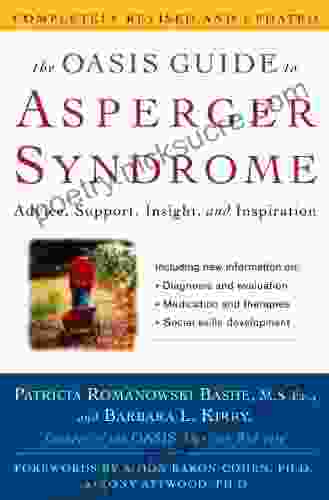
 Beau Carter
Beau CarterThe Oasis Guide to Asperger Syndrome
What is Asperger Syndrome? Asperger...
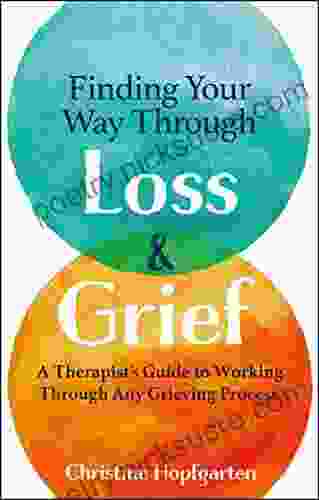
 Chadwick Powell
Chadwick PowellFinding Your Way Through Loss Grief: A Therapist S Guide...
Grief is a natural human emotion that we...
4.3 out of 5
| Language | : | English |
| File size | : | 672 KB |
| Text-to-Speech | : | Enabled |
| Screen Reader | : | Supported |
| Enhanced typesetting | : | Enabled |
| X-Ray | : | Enabled |
| Print length | : | 291 pages |
| Lending | : | Enabled |







